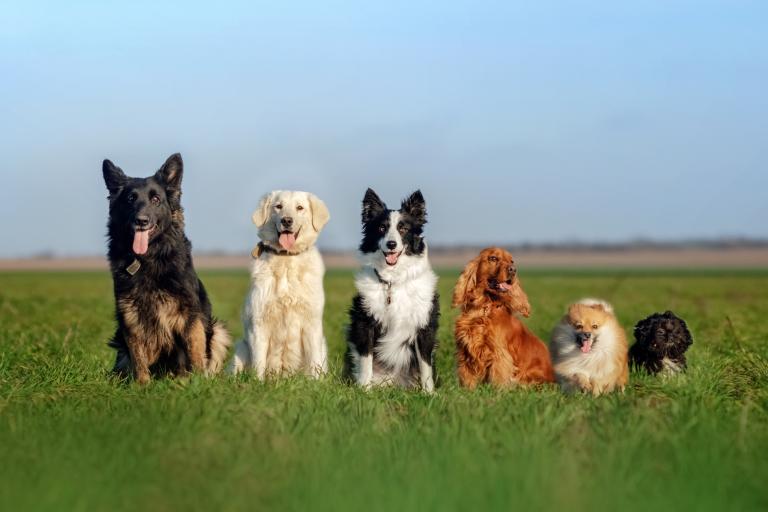New DNA test for dogs: Inbreeding and fitness - measuring genetic diversity: effective inbreeding management for healthier dogs

27.08.2024
Effective inbreeding management for healthier dogs
In a Study conducted in 2021, a total of around 50,000 dogs from 227 different breeds were examined for inbreeding. The results showed that, on average, each dog breed is so severely affected by inbreeding that, genetically speaking, the parent animals could be full siblings. High levels of inbreeding can lead to significant health problems, such as shortened life expectancy, increased susceptibility to autoimmune diseases and behavioral problems. In addition, the litter size of highly inbred dogs can be significantly smaller.
In our own research, however, we have found that not all dogs of a breed are affected to the same extent. The targeted selection of fewer inbred animals can help to maintain genetic diversity and thus improve the health and vitality of a breed.
The new inbreeding and fitness test
To help dog owners, future dog owners, breeding clubs and breeders, generatio has developed a test to determine the inbreeding status of dogs. This test makes it possible to determine important parameters such as heterozygosity, the genomic inbreeding coefficient and the ROH profile (Runs of Homozygosity).
Who is the test relevant for?
- Dog owners: Find out more about the inbreeding status of your dog
- Future dog owners: Make sure that your future (breed) dog is not excessively affected by inbreeding.
- Breed clubs and breeders: Get detailed information to preserve and promote genetic diversity within your breeds.
Why is the test important?
While inbreeding has been a key catalyst for the development of certain traits in our dog breeds throughout breeding history, it also carries significant risks. The overall fitness and health of dogs is closely linked to their genetic diversity. High levels of inbreeding can lead to frequent visits to the vet and serious health problems.
Our research has shown that within breeds heavily affected by inbreeding, there are also dogs with harmless inbreeding levels. The identification of these genetically more diverse individuals offers the possibility of using them specifically for effective inbreeding management.
Advantages of the new DNA test:
- Determination of 3 relevant values for inbreeding determination (GIK, HE and ROH)
- Precise localization of the inbred sections on the chromosomes (ROH profile), which enables the search for suitable breeding partners even in heavily inbred animals.
- Fast and reliable determination of inbreeding status based on genomic information, making the inaccurate assessment of inbreeding using pedigrees obsolete.
- Makes inbreeding measurable and enables it to be taken into account as a fixed factor in breeding management.
The DNA test thus offers an effective way of preserving genetic diversity and improving the health and vitality of dogs. Our new test offers an effective solution for the selection of breeding animals and contributes to the preservation of genetic diversity. Interested dog owners and breeders can now access our test portfolio and have the inbreeding and fitness status of their dogs checked.
